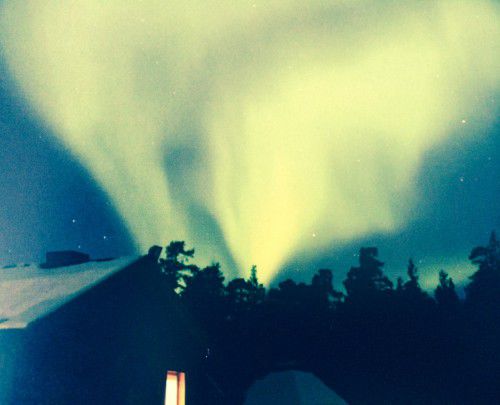IT was a moment of considerable bravery when composer and director of the Griffyn Ensemble, Michael Sollis, decided to bookend the 2012 Australian premiere of “Southern Sky” with his own musical response to the lights of the Arctic Circle, for it was never going to be easy to equal this memorable event.
Back in 2012, “Southern Sky,” written by Estonian composer and astronomer Urmas Sisask, was performed in the inimitable surrounds of the ruin at Mount Stromlo, which Sisask had visited in the 1990s.Under a bright autumn Canberra sky, popular astronomer Fred Watson joined the ensemble in person to lead a verbal tour through the skies above, as the Griffyn Ensemble played Sollis’ arrangement of Sisask’s work, originally written for piano.
After Sollis and Watson returned from a visit to the Arctic Circle in November 2014 in search of the antipodean answer to the previous work, it might have been expected that a similarly ambient location would have been chosen for the premiere of “Northern Lights”. The Fairfax Theatre was no such place.
The absence of the real-life Watson meant that his voice, now relegated to a recording, some transmitted over a phone, became just one of many vocal adjuncts to Sollis’ score and lapsed into ordinariness. And the whole work was played in near-darkness, a challenge for any audience inside a theatre.
As well, Sollis, very much in the manner of the southerner agog at encountering the Aurora Borealis and other arctic wonders, was not content with a mere journey through the constellations, but ventured into the area of mythology, with voice-over narration suggesting elements of Grimm’s Tales, maybe Dr Frankenstein pursuing his monster across the Arctic Circle and a plunge into the depths of the ocean with “The Song of the Whale,” where bass, harp, violin, voice and flute replicated the sounds of the great sea mammal.
An accompanying booklet featuring photos of the Arctic taken by Sollis, showed us the sites which had inspired him, mostly terrestrial scenes of snowy waste. Indeed, the earlier movements – there were 15 in all – suggested a melancholy response to the depths of winter rather than the thrill of the heavens. But his pursuit of the story of the Phoenix Aurora – the girl searching for the sun to break a curse – took it very far from both the snows and the night skies.
In this composition, all the skills of the Griffyn ensemble in its current make up were employed. Highlights included a gravelly, gaunt quality to the Laura Tanata’s work on the harp and an aggressive musical battle between the flute of Kiri Sollis and the double bass of Holly Downes.
Griffyn vocalist Susan Ellis gave us a memorable moment in a mischievous musical response to the Polestar of the north and elsewhere, the piercing sound of the flautist grated against the violin and bass to recreate the sense of excited particles in the heavens.
A problem for me was that despite the narrative and the separation into movements, “Northern Skies” had little sense of development. This meant that in the concluding movements, there appeared to be several false endings.
Logically, one might have expected this journey through the night skies of northern Sweden and Norway to conclude in “”Good Night Aurora”, lush with sombre, attenuated sounds and silences.
But Sollis’ passion to pursue the story of the girl seeking the sun led him towards a more positive conclusion in “Celestial Sunlight”. It wasn’t nearly so obvious a way to end.
The post Review / Underdeveloped music of the north goes west appeared first on Canberra CityNews.
